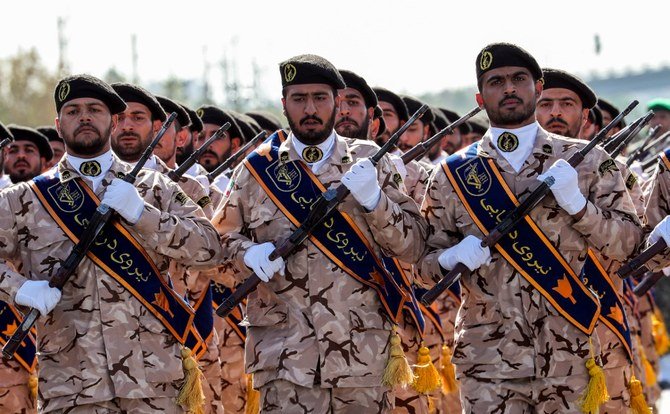
- ARAB NEWS
- 09 Jul 2025

In spite of the Trump administration’s maximum pressure policy on the Iranian regime, it is showing no signs of backing off from its belligerent policies and destructive behavior.
One of the core pillars of the Islamic Republic’s foreign policy is developing terror cells in foreign nations in order to wield influence and silence oppositional figures and groups. Most recently, the Albanian General Police Director Ardi Veliu last week revealed that an active cell of the foreign operations unit linked to the Iranian Quds Force had been detected by Albania’s security institutions. He said: “The Albanian authorities have identified these individuals and, thanks to intelligence from informants inside the criminal organizations, have prevented the planned (attack) of March 2018 and the eventual planning of attacks by organized crime members... on behalf of Iran.”
The Quds Force is an elite branch of the Islamic Revolutionary Guard Corps (IRGC) and is in charge of extraterritorial operations, such as organizing, supporting, training, arming and financing Iran’s militia groups; launching wars directly or indirectly via these proxies; fomenting unrest in other nations to advance Iran’s ideological and hegemonic interests; attacking and invading cities and countries; and assassinating foreign political figures and powerful Iranian dissidents worldwide.
The Quds Force has infiltrated top security, political, intelligence and military infrastructures in several countries, including Iraq and Syria. The Quds Force, which has about 20,000 members, can also use forces from the IRGC and the Basij paramilitary group in case of emergencies.
This is not the first time the Quds Force has attempted to create terror cells in foreign nations or trained militias and proxies to spy or carry out attacks against foreign entities. For example, the Quds Force was previously accused of failed plans to bomb Saudi and Israeli embassies and to assassinatethen-Saudi Ambassador to the US Adel Al-Jubeir in 2011. An investigation also revealedthat the group may have been behind the 2005 assassination of Lebanese Prime Minister Rafik Hariri. It has even been implicated in the 9/11 attacks, as US Judge George Daniels issued an order stating that Iran was liable because its support for Al-Qaeda allowed the terrorist attacks to occur.
“One of the main reasons for the Iranian regime’s terror cell in Albania is the targeting of the NCRI.”
One of the main reasons for the Iranian regime’s terror cell in Albania is the targeting of the National Council of Resistance of Iran (NCRI), which calls for a democratic system of governance in Iran, freedom of religion, social justice, the rule of law and respect for human rights. The oppositional group believes that the political establishment of the ruling clerics is based on authoritarianism and a religious dictatorship.
The Islamic Republic has increasingly become concerned about the NCRI because it is now considered to be the largest Iranian opposition group in exile and it has connections with people on the ground in Iran. Many believe that this gives the opposition the crucial resources it needs to play a significant role in counterbalancing the power of the ruling ayatollahs, pushing for a democratic system of governance in Iran, scuttling the mullahs’ foreign policy objectives, and preserving the US’ national and economic interests.
The NCRI previously revealedIran’s clandestine uranium enrichment sites in Arak and Natanz. The Iranian authorities also fear that foreign governments may cooperate closely with the opposition, magnifying its power in inspiring disaffected youths in Iran to protest against the regime.
This is not the first time the Iranian regime has tried to orchestrate a terrorist operation in Europe. French officials foiled a planned bomb attack against a large June 2018 “Free Iran” convention in Paris. The NCRI event was attended by many high-level speakers, including former US House of Representatives Speaker Newt Gingrich, former New York City Mayor Rudy Giuliani, and former Canadian Foreign Minister John Baird. An Iranian diplomat and several other individuals of Iranian origin were soon arrested in France, Belgium and Germany. After a thorough investigation, French officials concluded that the Iranian regime was behind the bomb plot. If the attack had been successful, the loss of life would have been staggering, but the devastating toll it would have taken on the community that fights for human rights would have been immeasurable.
Iran’s presence was also detected in 2018 in Denmark, where officials accused Tehran of attempting to assassinate one of its citizens.
The Iranian regime is clearly intensifying its efforts to create terror cells in foreign countries. It is incumbent on the international community to hold the Iranian leaders accountable.
Dr. Majid Rafizadeh is a Harvard-educated Iranian-American political scientist. He is a leading expert on Iran and US foreign policy, a businessman and president of the International American Council. Twitter: @Dr_Rafizadeh